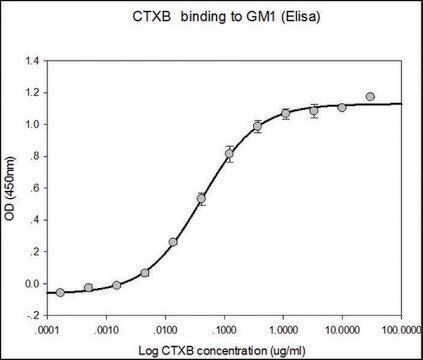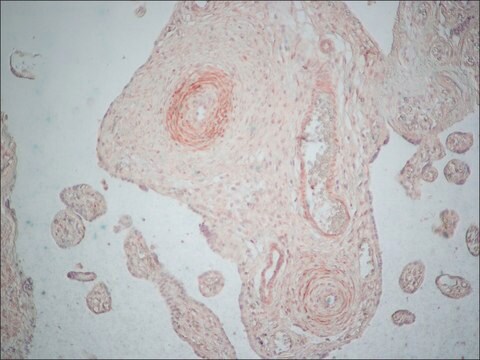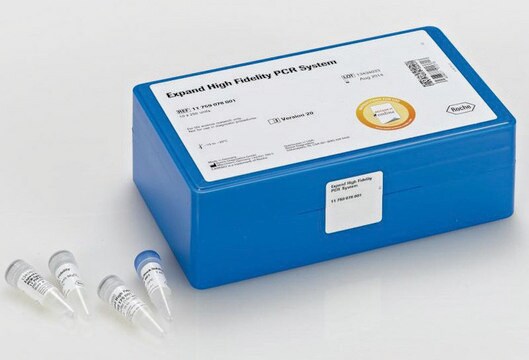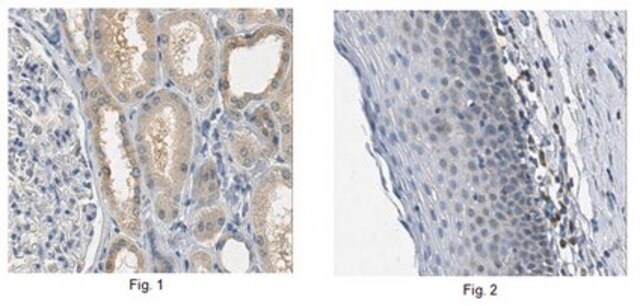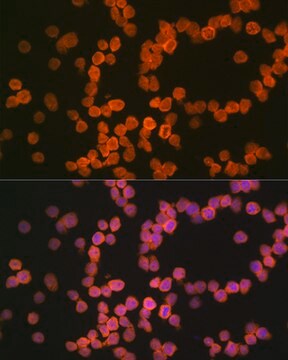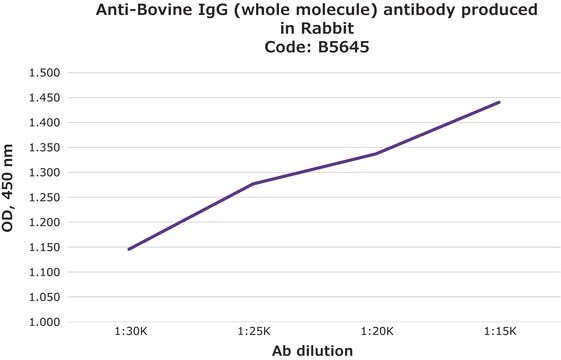MAB1476-I
Anti-Chymotrypsin (Hu Pancreas) Antibody
About This Item
Polecane produkty
pochodzenie biologiczne
mouse
Poziom jakości
białko sprzężone
unconjugated
forma przeciwciała
purified antibody
rodzaj przeciwciała
primary antibodies
klon
CHYMO10-104.10, monoclonal
masa cząsteczkowa
calculated mol wt 28 kDa
reaktywność gatunkowa
human
opakowanie
antibody small pack of 100 μg
metody
ELISA: suitable
immunohistochemistry (formalin-fixed, paraffin-embedded sections): suitable
izotyp
IgG1
numer dostępu UniProt
Warunki transportu
dry ice
temp. przechowywania
-10 to -25°C
docelowa modyfikacja potranslacyjna
unmodified
Opis ogólny
Specyficzność
Immunogen
Zastosowanie
Immunohistochemistry: 1:1000.
Note: Actual optimal working dilutions must be determined by end user as specimens, and experimental conditions may vary with the end user
Postać fizyczna
Przechowywanie i stabilność
Inne uwagi
Oświadczenie o zrzeczeniu się odpowiedzialności
Nie możesz znaleźć właściwego produktu?
Wypróbuj nasz Narzędzie selektora produktów.
Kod klasy składowania
12 - Non Combustible Liquids
Klasa zagrożenia wodnego (WGK)
WGK 2
Temperatura zapłonu (°F)
Not applicable
Temperatura zapłonu (°C)
Not applicable
Certyfikaty analizy (CoA)
Poszukaj Certyfikaty analizy (CoA), wpisując numer partii/serii produktów. Numery serii i partii można znaleźć na etykiecie produktu po słowach „seria” lub „partia”.
Masz już ten produkt?
Dokumenty związane z niedawno zakupionymi produktami zostały zamieszczone w Bibliotece dokumentów.
Nasz zespół naukowców ma doświadczenie we wszystkich obszarach badań, w tym w naukach przyrodniczych, materiałoznawstwie, syntezie chemicznej, chromatografii, analityce i wielu innych dziedzinach.
Skontaktuj się z zespołem ds. pomocy technicznej